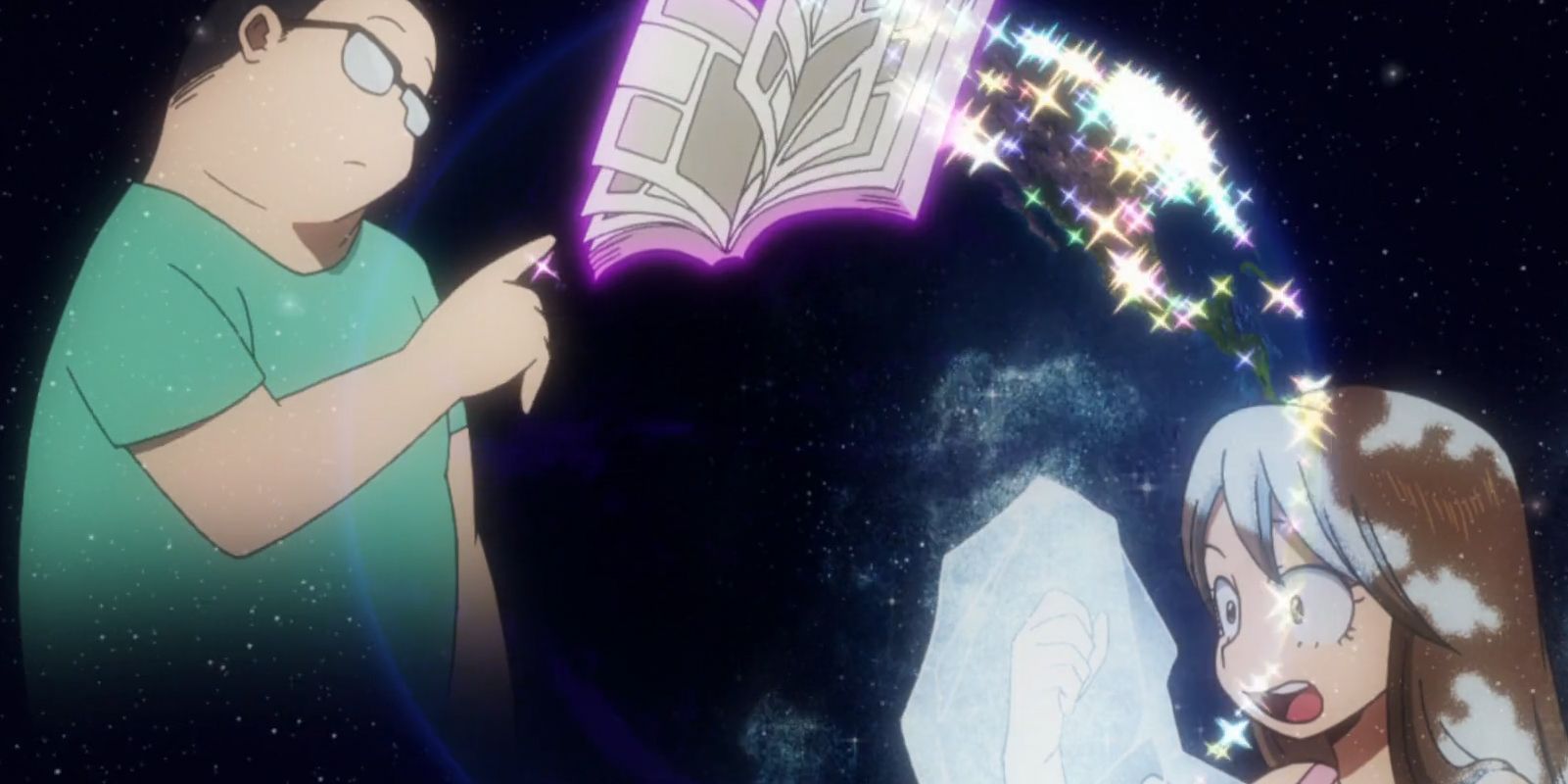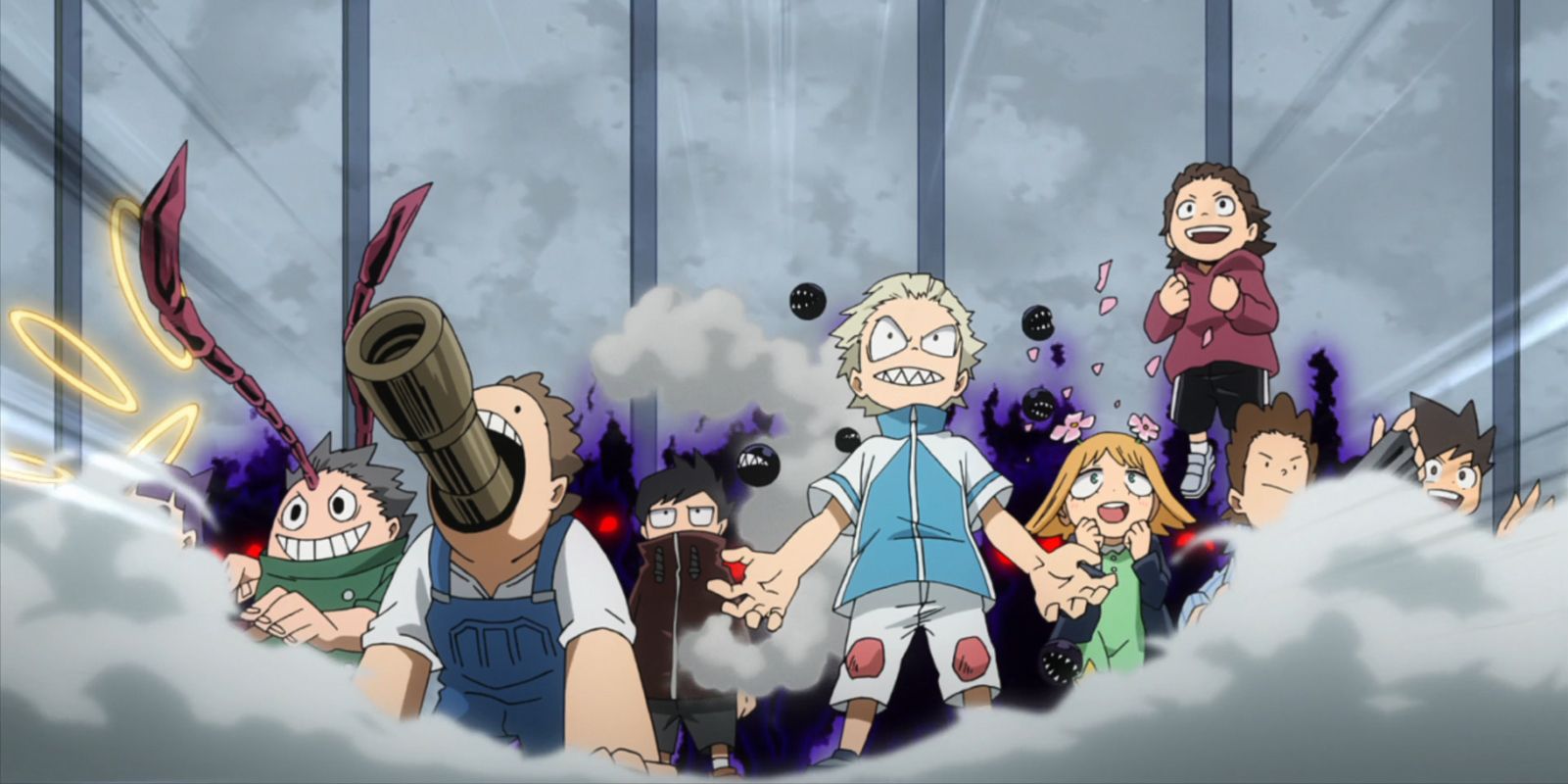My Hero Academia The Deadly Quirk Singularity Theory Explained
My Hero Academia: The Deadly ‘Quirk Singularity’ Theory Explained
If quirks are passed down from parents to children, what happens after generations of inheritance? The answer is a core problem in My Hero Academia.
You Are Reading :[thien_display_title]

Superhuman powers called quirks are at the heart of everything in the My Hero Academia world, and the “Quirk Singularity” theory is the ultimate expression of that. Quirks can influence your status, open up career paths, or make you a target for villains. It’s said that quirks first appeared suddenly out of nowhere, with the birth of a glowing baby, and began manifesting all around the world. Society was changed forever, and the age of superpowers began. But major change is never without fear and controversy, and the biggest fear of all is the Quirk Singularity theory. What exactly is this theory, and what impact could it have on the story as it builds to its climax?
The most important thing to understand about quirks is that while they are highly unique between people, a quirk is also inheritable, to a certain extent. While it’s not guaranteed that a child will inherit a quirk from their parents, it’s a distinct possibility, and the child isn’t limited to just one quirk. Heteromorphic quirks, which alter a person’s appearance, for example, always pass down those physical changes, leading to the colorful and varied population seen in the series. Those seeking power and strength may, then, marry someone specifically to create a child with one or both of their quirks in what they call a “quirk marriage.” Shoto Todoroki was born this way, inheriting ice powers from his mother and flames from his father. It can also happen incidentally, as with Katsuki Bakugo, whose power is a combination of his mother’s glycerin-generating ability and his father’s acid sweat, which result in his nitroglycerin explosive quirk.
This presented a problem that Dr. Kyudai Garaki, a scientist in the My Hero Academia universe, quickly dubbed the “Quirk Singularity.” A child inherits their parents’ quirks, who then grows up to marry another person who inherited both their parents’ quirks, giving birth to a child who could potentially have four different quirks, combining in unpredictable and potentially dangerous ways. This continues, generation after generation, resulting in incredibly powerful abilities. This has even shown up in the series, as the class 1-A kids were entrusted with babysitting a rowdy group of younger kids with quirks so strong they had their teacher cowering in fear. Even amongst class 1-A, many students (like Bakugo and Todoroki) exhibit quirks that far exceed those of their parents. And since quirks begin manifesting in children at such a young age, the problem of kids who can’t handle their quirks is already emerging as a major issue. What future is in store for the Earth and humanity when children with the power of a god are born on a regular basis?

While that’s the end of the public’s knowledge of Quirk Singularity, its relevance doesn’t stop there. Izuku Midoriya’s quirk, One for All, is a quirk that can be transferred from one person to another, and each time this takes place, it transfers the host’s original quirk with it. This means that One for All grows stronger with each host, allowing access to the abilities of all who came before. And just as Midoriya’s body was unable to handle All Might’s strength when he first acquired One for All, this kind of physical limitation is only a taste of what lies in store for post-Singularity children. His nemesis, All for One, is also very aware of the Quirk Singularity theory–the theory’s creator, Garaki, has become his loyal follower.
Quirk Singularity poses major problems for society in the My Hero Academia world, and leaves the future uncertain. While some, like All for One, may wish to force this scenario upon the world in some sort of social Darwinist nightmare, the reality could be very different. The first wave of quirks caused much upheaval, but ultimately the situation stabilized into the hero-based world seen today. It’s entirely possible that, rather than an apocalyptic generation of children, their society will grow as humanity continues to evolve, better incorporating quirks into ordinary life and no longer seeing them as such a threat. One thing’s for sure, however: a better future like that can only happen when heroes win.
Link Source : https://screenrant.com/my-hero-academia-manga-quirk-singularity-theory-explained/
Movies -Pokémon Sword & Shield 10 Tips For Taking On Oleana
Once Upon A Time 10 Best Hook & Emma Quotes Ranked
Marvel Theory Visions Phase 4 Return Also Brings Back Ultron
Max Cloud Is Scott Adkins Street Fighter (In A Good Way)
Punchline Could Be More Dangerous Than The Joker
SmashAndGrab Thieves Use Snapchat & Other Apps To Coordinate Attacks
Marc Shaiman & Scott Wittman Interview Rogers The Musical
